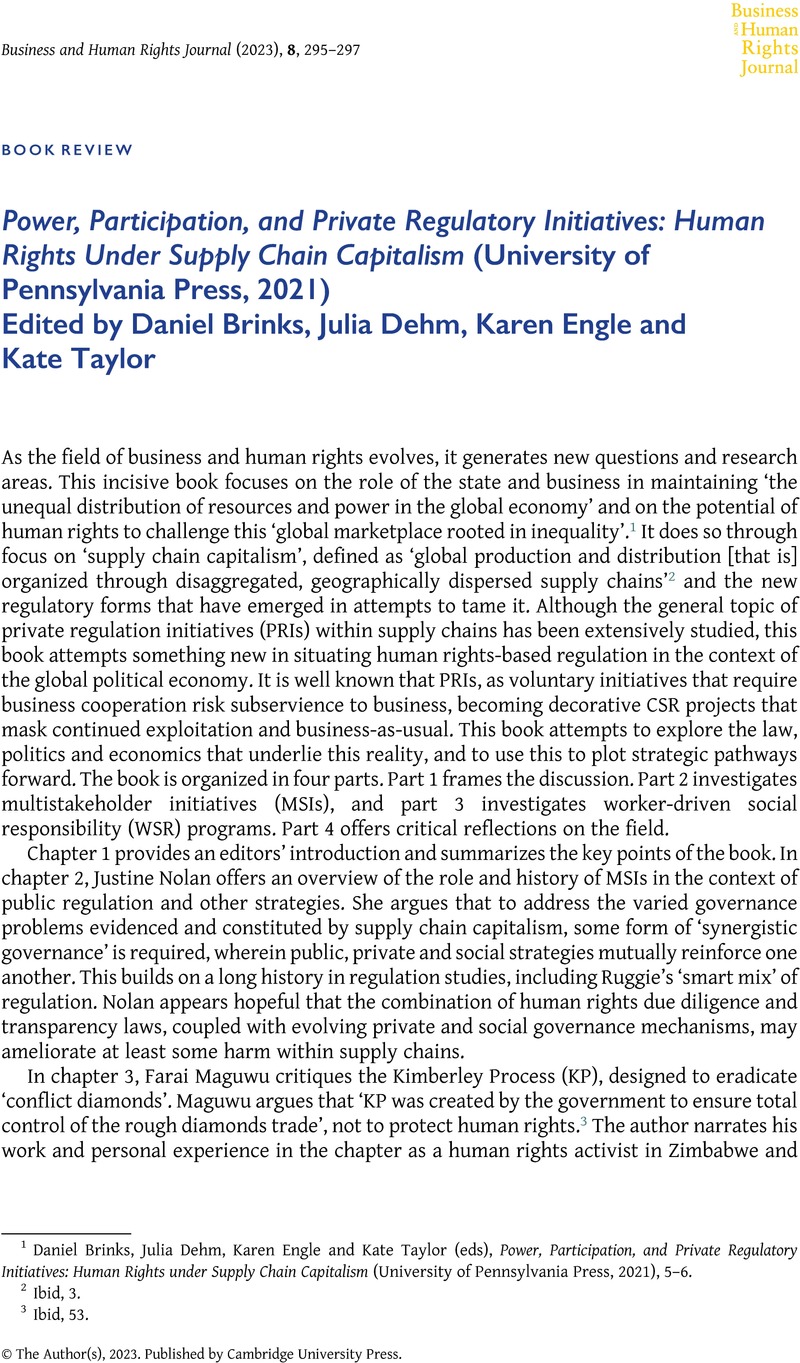No CrossRef data available.
Article contents
Power, Participation, and Private Regulatory Initiatives: Human Rights Under Supply Chain Capitalism (University of Pennsylvania Press, 2021) Edited by Daniel Brinks, Julia Dehm, Karen Engle and Kate Taylor
Review products
Power, Participation, and Private Regulatory Initiatives: Human Rights Under Supply Chain Capitalism (University of Pennsylvania Press, 2021) Edited by Daniel Brinks, Julia Dehm, Karen Engle and Kate Taylor
Published online by Cambridge University Press: 07 March 2023
Abstract
An abstract is not available for this content so a preview has been provided. Please use the Get access link above for information on how to access this content.

- Type
- Book Review
- Information
- Business and Human Rights Journal , Volume 8 , Issue 2: Special Issue: Beyond human rights due diligence: What else do we need? , June 2023 , pp. 295 - 297
- Copyright
- © The Author(s), 2023. Published by Cambridge University Press
References
1 Brinks, Daniel, Dehm, Julia, Engle, Karen and Taylor, Kate (eds), Power, Participation, and Private Regulatory Initiatives: Human Rights under Supply Chain Capitalism (University of Pennsylvania Press, 2021), 5–6CrossRefGoogle Scholar.
2 Ibid, 3.
3 Ibid, 53.
4 Ibid, 54.
5 Ibid, 74.
6 Ibid, 75.
7 Ibid, 107.
8 Ibid, 102.
9 Ibid, 134–135.
10 Ibid, 146–148.
11 Ibid, 148–153.
12 Ibid, 227–234.
13 Ibid, 235.
14 Ibid, 240–241.
15 Ibid, 242.
16 Ibid, 255–256.


